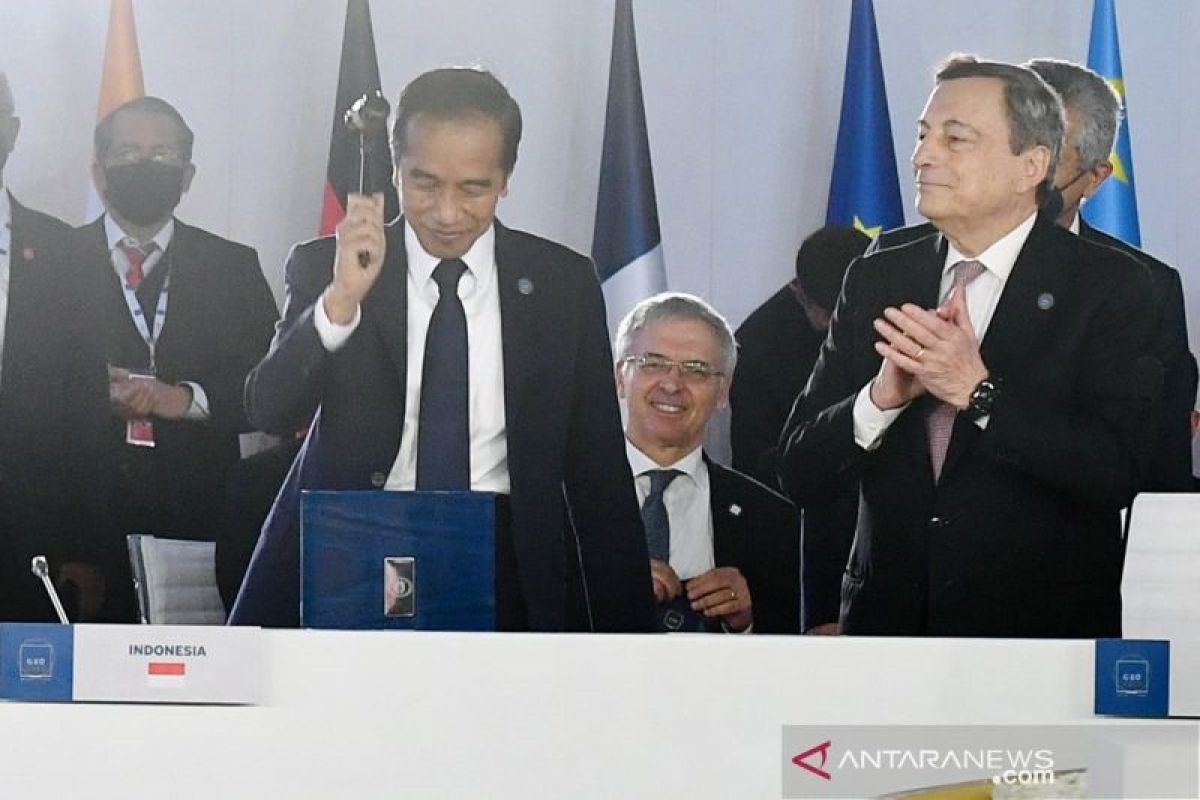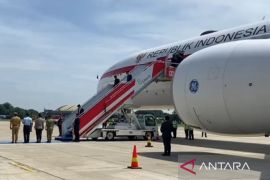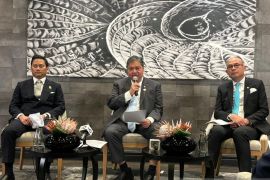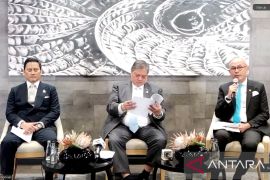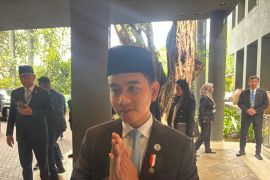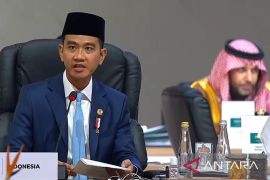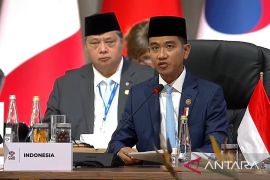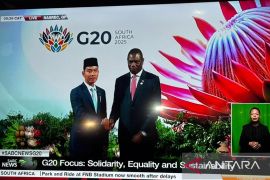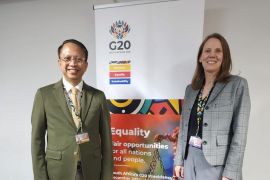The jargon offers an affirmation that the COVID-19 pandemic should be overcome by putting forward the principle of togetherness, so there would be no gap left for SARS-CoV-2 to harm humans.
One of the political figures who dared to voice the statement was Indonesian Health Minister Budi Gunadi Sadikin. On the Health Ministry's official website, Sadikin stressed that all parties should work together to exit the pandemic since protecting the region and ensuring people's safety is part of their responsibilities.
As Indonesia hosts the G20 Presidency in 2022, the minister believed that it is able to create a health system that can help future generations become more resilient to pandemics by transforming the health infrastructure in Indonesia and the world.
Related news: Wisma Atlet Hospital's occupancy rate reaches 63 percent: Official
On the other hand, Griffith University epidemiologist Dicky Budiman remarked that for all health architecture to stand strong and stay sovereign amid the COVID-19 pandemic, all countries must help one another in addition to prioritizing leadership and risk communication strategies.
According to Budiman, great leadership and communication have brought Indonesia to rise from the grim scenario of a spike in Delta cases in 2021.
He explained that risk communication strategies can be used as an effective tool to develop a public understanding of pandemic conditions without expensive costs. It proved impactful in countries on the African continent where governments displayed the countries' resilience to the pandemic through addressing issues that impact society, such as economic circumstances.
Related news: Gov't recommends self-isolation for people with mild symptoms
Inequality in COVID-19 handling
Entering the third year of the COVID-19 pandemic, global health resilience did not show any significant change. Many inequalities still occurred throughout the country, such as the expansion of vaccination coverage.
Budiman revealed that 20 percent of the developed countries, such as the United States, Australia, and Scandinavia, no longer had to be concerned about providing booster vaccine stocks for their people.
However, countries in developing countries, such as Indonesia, had to order vaccine stocks through lobbying efforts and diplomacy. Poor countries can only obtain vaccine donations from bilateral relations through the COVAX Facility.
The same view was also echoed by Finance Minister Sri Mulyani in her statement at a hotel in Rome, Italy, on October 30, 2021. Mulyani explained that the fact that some countries faced difficulties in procuring vaccine stocks had made the global economic recovery unbalanced.
Vaccination coverage in African countries was lower than the average vaccine coverage of poor countries. Vaccination in developed countries has reached above 70 percent and close to 100 percent.
This inequality revealed that the world was never ready for a global pandemic, she stated. As of February 4, 2022, over 388 million people have been affected by the virus, with the number of deaths already hitting more than 5.7 million.
University of Indonesia (UI) International Law Professor Hikmahanto Juwana, in a podcast interview with ANTARA, remarked that the role of Indonesia, as the host of the G20 presidency, brings both challenges and opportunities for the country.
In terms of challenges, Indonesia must deal with world health issues. However, if Indonesia can get through the situation well, it can become an opportunity that can bolster vaccination equality for all countries.
Juwana explained that if a country is left behind and does not get the COVID-19 vaccine stocks, then the world would not be able to come out of the pandemic period. Hence, he suggested that the vaccine stocks be distributed for free to countries facing difficulties.
Related news: KSP calls for strong collaboration for promoting G20 Presidency
Global Health System
During a virtual discussion with the Bandung Institute of Technology School of Business and Management (SBM ITB), Sadikin, stated that the world needs an institution that manages the global health system, such as the International Monetary Fund (IMF) for the economy.
He assessed that the existence of a system and funding, with mechanisms and governance systems supported by several countries, can help the world deal with pandemics that may occur any time in future.
During the G20 Presidency, there is an idea of the establishment of a "World Health Bank" for global security health. However, he believes it will not be easy, as it gives the impression that the existing institution, such as the World Health Organization (WHO), is not maximized.
"For instance, it often happens in a region that is supported financially, but its implementation is not effective and unequal, as there is no program that aims to enhance capacity. Incompetent human resources and unfit strategies are like throwing money into the sea," he remarked.
Related news: Telkom chairs B20 Indonesia's Digitalization Task Force
The establishment of a new global institution must start from creating a fresh system where it requires significant amount of funds, roles, major responsibilities, and support.
Meanwhile, amid the COVID-19 pandemic, not all countries can give support due to the lack of funds, Budiman affirmed.
With Indonesia having assumed the 2022 G20 presidency, he remains optimistic that the government would firstly improve the architecture of global health resilience by sitting down with several nations' representatives in the hopes of addressing overlapping in the system, thereby making it synergistic and strong.
He also remarked that if the World Bank Health is really intended to be realized, it would be better if the government incorporated it under the WHO.
Related news: Govt anticipated current spike in COVID-19 cases: President
Related news: Current wave to be steeper than Delta surge: ministry
Translator: Hreeloita S, Kenzu T
Editor: Fardah Assegaf
Copyright © ANTARA 2022
